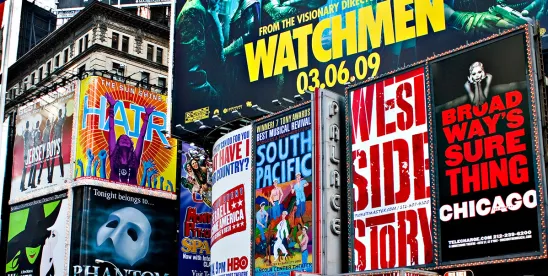In Heckman v Live Nation Entertainment, Inc., No. 23-55770 (9th Cir. Oct. 28, 2024), the Ninth Circuit revisited Live Nation and Ticketmaster’s arbitration clause and class action waiver after having upheld a previous version last year. Oberstein v. Live Nation Entertainment, Inc., 60F. 4th 505 (9th Cir. 2023). Live Nation and Ticketmaster’s latest attempt to contain burgeoning consumer litigation involves an effort to curtail what is known as “mass arbitration” — the practice of plaintiff-side attorneys whose clients are bound by class action waivers to inundate defendants with many individual small-stakes consumer claims in arbitration. Ultimately, the Ninth Circuit upheld the decision by Judge George H. Wu of the Central District of California to deny Defendants’ motion to compel arbitration, finding the delegation clause as well as the arbitration procedures procedurally unconscionable “to an extreme degree,” and substantively unconscionable to a “substantial degree” under California law. At bottom, the panel pushed back on what it appears to have viewed as an attempt by Live Nation and Ticketmaster to “have their cake and eat it too” by imposing barriers to multiple arbitrations after having succeeded in precluding the most likely alternative—a class action.
Live Nation and Ticketmaster attempted to head off mass arbitration by incorporating several new procedural hurdles into their clause. First, they delegated to the arbitrator the decision whether the arbitration clause was enforceable. Second, the arbitrator would be one employed by a newly-created entity—New Era ADR—using innovative ADR procedures, including the “batching” of similar claims and other procedural novelties.
Notably, New Era’s Mass/Expedited Arbitration procedures included a procedure reminiscent of multi-district litigation in which plaintiffs with similar cases would be “batched” into groups of five or more, of which three “bellwether” cases create binding “precedent” for all other batched cases. The court took issue with the asymmetry created by this batching process, finding that New Era’s protocols created a system in which Defendants had stacked the deck in their favor: “New Era’s Rules provide to defendants many of the protections and advantages of a class action, but provide to non-bellwether plaintiffs virtually none of its protections and advantages.” Id. at 23. Some of those disadvantages included the following: (1) all non-bellwether plaintiffs were required to participate in a single settlement conference, and (2) non-bellwether plaintiffs did not have access to the bellwether record while the defendants do. In addition, the decision as to which cases would proceed as a “batch” would be made unilaterally by the ADR provider. Further, “bellwether” cases would be chosen from among the “batched” cases, and decisions in those cases would be precedential and binding on non-bellwether plaintiffs, who were not parties or participants. All of these provisions contributed to the Panel’s conclusion that both the delegation provision and the terms of the arbitration agreement as a whole were unconscionable and unenforceable under California law.
Significantly, the Ninth Circuit also held based on “alternate and independent ground, that the application of California unconscionability law to the arbitration agreement at issue here is not preempted by the FAA.” Id. at 32. The panel held that the FAA did not preempt California’s prohibition of arbitration clauses containing class action waivers in multiple small-stakes consumer contracts.
Both the majority (Judges Fletcher and Christen) and concurrence (Judge VanDyke) carved out an exception to Concepcion [AT&T Mobility LLC v. Concepcion, 563 U.S. 333 (2011)] as it applies to mass arbitration models, stating that mass arbitration is not the type of arbitration the FAA is designed to protect. The majority highlighted the disadvantages of aggregation as opposed to the individual, “bilateral” form of arbitration traditionally protected under the FAA. Id. at 33. Therefore, the Ninth Circuit paved the way for California’s pre-existing Discover Bank rule to apply, under which the rules imposed by New Era were deemed to be unconscionable. This independent and alternative ground raises new questions as to whether mass arbitration models are in fact distinguishable from those governed by the FAA.
For defendants, Heckman stands for the proposition that arbitration clauses designed to head off class actions cannot utilize class action-like procedures that appear to benefit defendants without providing sufficient protections to consumers.
Live Nation and Ticketmaster filed a Petition for Panel Rehearing and/or Rehearing En Banc. The petition argued that both bases of the decision warrant rehearing. First, the defendants argued that the panel misinterpreted the holding of Concepcion and that a carve-out of mass arbitration would have grave consequences. Further, the defendants argued that the panel should have severed the problematic provisions and not invalidated the entire clause. The Ninth Circuit has since denied rehearing. We will continue to monitor this space for any further developments.
Ce-Lai Powell Fong also contributed to this article.



 />i
/>i
